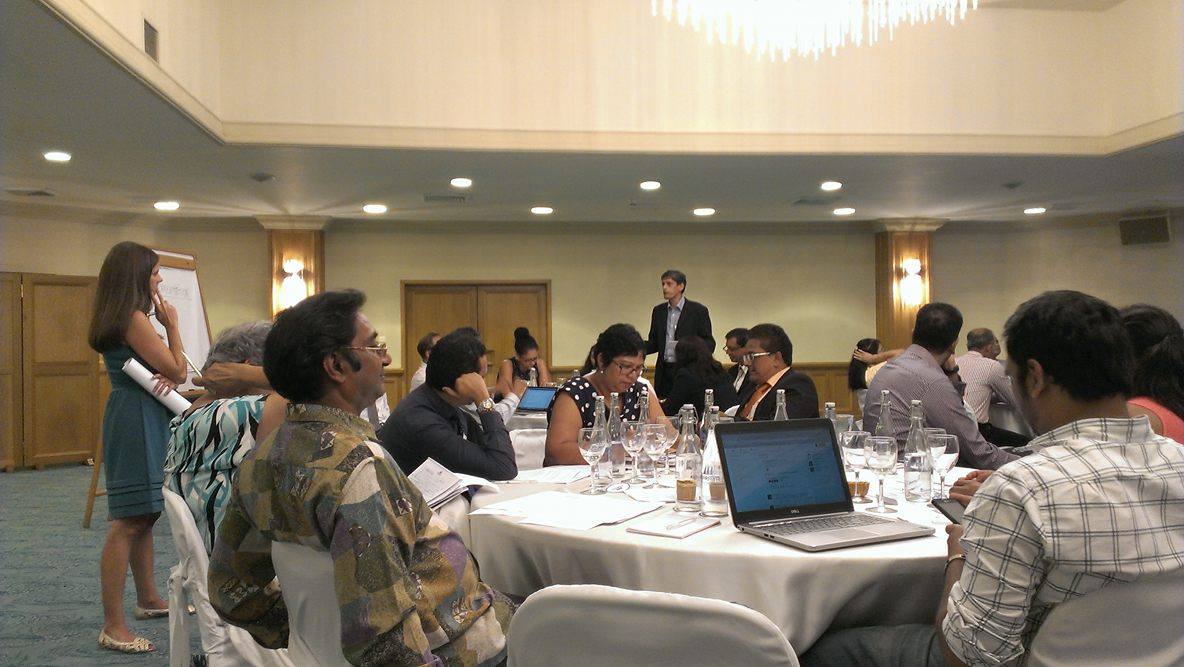Freedom of Information Act. When?
December 13, 2015
Last Friday the U.S Embassy organized a workshop on “what would a model of Freedom of Information Act look like for Mauritius”. I attended as a member of the Mauritius Internet Users, and introduced myself as a System Administrator at La Sentinelle and a member of the ICT Advisory Council. The workshop happened at Maritim Hotel and along the way I picked up Om and Sun. When we arrived at the hotel the workshop had started. We were shown our seats, which were on different tables. That intrigued me. Each table had eight persons, not from the same group or organization. It struck me that there should be some sort of brainstorming/activity later.
Corrina Zarek, Senior Advisor for Open Government, USA, as she finished a short discourse on the Freedom of Information, invited us to introduce ourselves to the rest of the room.
Corrina took us back in history relating the circumstances under which the first Freedom of Information Act was implemented. That happened in 1766 in Sweden, followed by Finland in 1951. The United States of America adopted the freedom of information laws in 1966. Today around 95 countries in the world have implemented some form of freedom of information legislation, with a dozen countries in the African continent, namely Angola, Rwanda, Uganda, Zimbabwe among others.
I was attentive and I particularly liked the part where Corrina described the “request process”, mentioning the use of email. Yes, I have some very good examples of email requests (see the Mauritius Internet Users mailing list) that government officers did not attend to.
In fact, S. Moonesamy reported back to the group with a summary of the workshop. I recommend reading that as it elaborates the workshop as it happened.

How to prepare after FOIA is enacted?
There was a brainstorming session where participants were shuffled in various groups and asked to come up with a plan on how to prepare the government and requester once the FOIA is enacted. In my group, we discussed whether there should be a centralized information desk or each ministry having an information unit. The group agreed that we could have a separate office like that of the Data Protection Office with a commissioner with “authority” at its head. Each ministry could have an information officer, in the equivalence of data controllers. That way, we’ll ensure that each ministry has one person who is well versed in the Freedom of Information Act. We also discussed on the need of training for “front desk”; which comprises of officers answering phone calls, replying emails and attending requests at the office counter. When answering a requester the officer should remind the requester his right according to FOIA and cite the relevant exception in case a piece of information cannot be provided.
Concerning requesters, our group reflected that, contrary to a limited budget which the Data Protection Office seem to be suffering from, this new office should be given a proper budget to make good use of media for information dissemination. Newspapers, TV and radio are good channels to educate citizens about the legislation and how they can exercise their right.
The last activity involved having people in groups of three and they had to act in the role of a requester, information officer and an expert. The situation given was that a road had repairs pending and the requester inquires with the information officer regarding details of the project, who in turn seek this information from the transport expert. The whole thing boils down to a difficult situation where an information officer would usually be crushed between the requester and the lazy/stubborn expert.

Corrina then thanked everyone for taking part in the activities and left it to us on how we should push forward. In fact, at the beginning I did ask Corrina about the outcome of the workshop, whether it’ll be a report sent to the government, which might ultimately lie among a pile of files. What happens after the workshop depends on how serious and willing are we to get a Freedom of Information Act in Mauritius.
There was a comment that the press could put pressure and get our voices heard, but then I answered that lexpress.mu has put a counter on it’s homepage to show the number of days since the Freedom of Information Act was promised by the current government, but sadly, few people show interest in this.
To be honest, I am not sure of the willingness of people to question the authority and ask for their rights to information. A handful of concerned citizens will raise their voice and might continue the fight though, I just hope to add a little contribution to the collective effort in some way or the other.
Two publications appeared on lexpress.mu following the workshops by Corrina Zarek in Mauritius:
Législation: la Freedom of Information Act en 2016 Il est grand temps que le Freedom of Information Act entre en vigueur